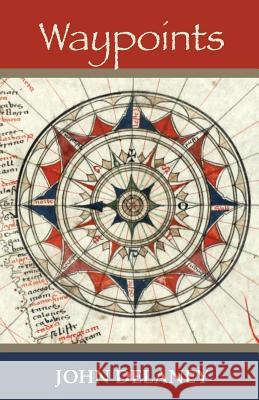Waypoints » książka
Waypoints
ISBN-13: 9780912887517 / Angielski / Miękka / 2017 / 68 str.
About the book: Far ranging in its geography, Waypoints is a collection of poems that mark the itinerary of a poet wanderer--in matter and mind--over many years. As he acknowledges in his statement about the book, John often writes about places he has been because, like a GPS system, they reflect the ups and downs, turns and twists (tone and tenor), of the mental and emotional life-journey he has been taking. Believing there is no better teacher and no better resource for the imagination than nature, John is most grounded when he is in some remote place, enjoying the challenge it presents and the adventure it becomes.These poems take the reader to unique locales around the world, from Port Townsend, Washington, where John now lives, to Nepal, Africa, and South America, where he has trekked. In each case, the presence of place informs his themes, such as time, family, and natural world wonder. Placed in the pages' margins, the addition of latitude/longitude coordinates for the actual settings of the poems adds a more specific geographic level that curious readers may wish to explore on Google Earth. Included with John's trek to Machu Picchu with his son are the actual photographs he took on their journey that inspired his haiku.Whether formal or not, with rhyme or without, the poems in this volume will challenge the reader to examine his or her own paths and the stops along them that have made the most impression--questioning how and why such experiences enable us to move forward in a reflective and grateful manner.John is the former curator of historic maps at Princeton University. A graduate of Syracuse's Writing Program in 1976, John offers Waypoints as his first collection. Why did he wait 40 years? Let's say that life intervened--and a lot of travel.
About the book: Far ranging in its geography, Waypoints is a collection of poems that mark the itinerary of a poet wanderer—in matter and mind—over many years. As he acknowledges in his statement about the book, John often writes about places he has been because, like a GPS system, they reflect the ups and downs, turns and twists (tone and tenor), of the mental and emotional life-journey he has been taking. Believing there is no better teacher and no better resource for the imagination than nature, John is most grounded when he is in some remote place, enjoying the challenge it presents and the adventure it becomes.These poems take the reader to unique locales around the world, from Port Townsend, Washington, where John now lives, to Nepal, Africa, and South America, where he has trekked. In each case, the presence of place informs his themes, such as time, family, and natural world wonder. Placed in the pages’ margins, the addition of latitude/longitude coordinates for the actual settings of the poems adds a more specific geographic level that curious readers may wish to explore on Google Earth. Included with John’s trek to Machu Picchu with his son are the actual photographs he took on their journey that inspired his haiku.Whether formal or not, with rhyme or without, the poems in this volume will challenge the reader to examine his or her own paths and the stops along them that have made the most impression—questioning how and why such experiences enable us to move forward in a reflective and grateful manner.John is the former curator of historic maps at Princeton University. A graduate of Syracuse’s Writing Program in 1976, John offers Waypoints as his first collection. Why did he wait 40 years? Let’s say that life intervened—and a lot of travel.











